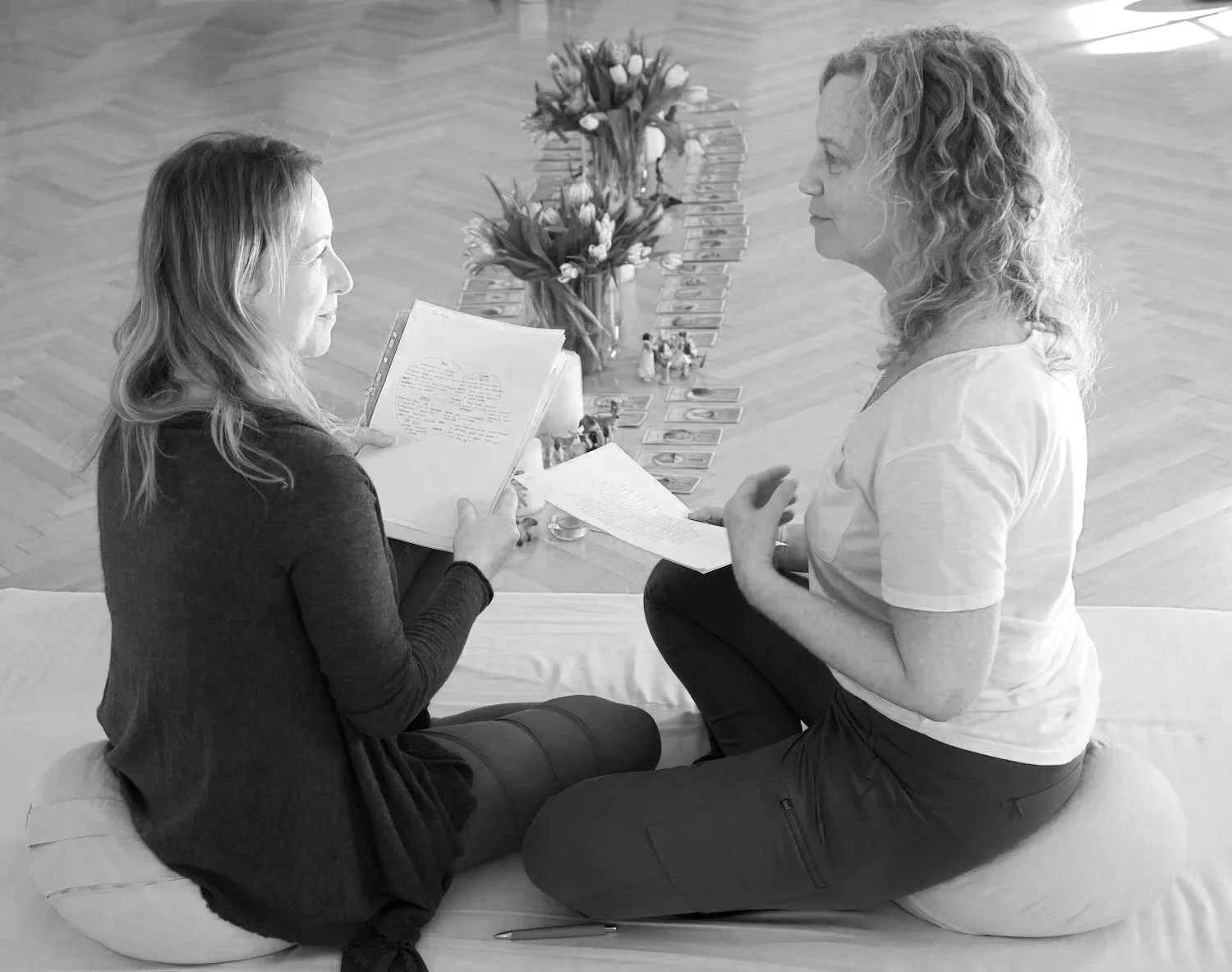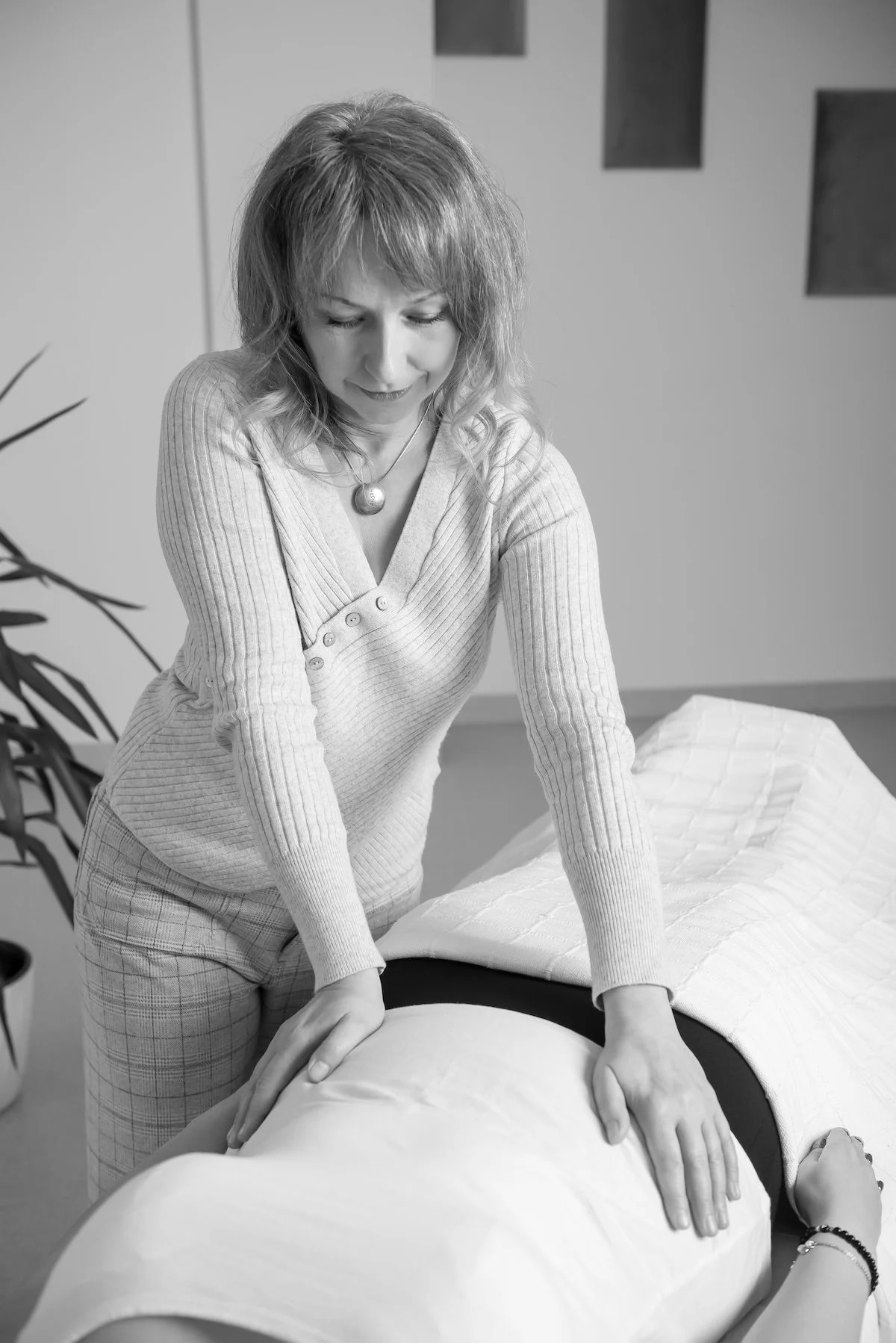Visionary Craniosacral Work®
Life is a dance between motion and stillness. Movement in the body, like in Nature, happens in spirals and waves, and sometimes it is the subtlest of movements (or lack, thereof) that can have the most profound impact on our sense of health and self.
Developed by Hugh Milne from the tradition of osteopathy, Visionary Craniosacral Work can be the key to releasing deep-seated discomforts and the somato-emotional effects of trauma.
It works through soft contacts with the bones and sutures of the skull, spine and sacrum which harmonise the movements and pulsations inherent in each person’s natural metabolism.
For in-depth information visit the Milne Institute.
-
Visionary Craniosacral Work can provide support for:
Chronic pain, headaches, and migraines
Neck, jaw, and back tension
Stress, anxiety, and overwhelm
Sleep disturbances and fatigue
Emotional or physical trauma
Nervous system disregulation
Post-injury or post-surgical recovery
Life transitions, grief, or burnout
Beyond relief from symptoms, this work offers a deeper reconnection to a felt sense of safety, spaciousness, and ease.
-
Somato-Emotional Release is often woven into craniosacral sessions. It is grounded in the understanding that unresolved emotions and trauma can become held in the tissues of the body, manifesting as physical pain, restriction, or imbalance.
The practitioner can help you connect with your sensations, images, and emotions as they arise, allowing stored experiences to be acknowledged and released.
-
Because babies are so receptive, even the lightest touch can create meaningful change, promoting comfort, relaxation, and a deeper sense of ease for both baby and parent. Craniosacral therapy can be useful for:
Fussiness or colic
Feeding or latching difficulties
Sleep disturbances
Discomfort following birth or medical interventions
ScarWork®
Scar Work is a gentle, pain free approach that supports the body and skin in healing after surgery, injury, inflammation, or trauma.
I combine the scar work techniques developed by Sharon Wheeler, a close student of Ida Rolf, with insights from Visceral Manipulation, to deepen and enhance the work on the tissues involved in scar formation: fascia, muscles, and the connections to internal organs. This integrated approach addresses both the visible scar and the underlying structures that may be restricted, supporting the body’s natural healing process.
For in-depth information visit Sharon Wheeler’s website
-
Scar work can be beneficial for a wide range of situations, including:
Post-surgical scars (orthopaedic, abdominal, gynaecological, or other procedures)
Scars following injury or trauma
Post-infection or post-inflammatory scarring
Post-amputation recovery, including relief from phantom limb sensations
Chronic scar tissue causing pain, restriction, or reduced function
-
The benefits of scar work extend beyond appearance and mobility. By addressing restrictions in the skin and underlying tissues, scar work can:
Improve mobility, flexibility, and range of motion
Reduce pain, tightness, and discomfort associated with scar tissue
Support the nervous system and lessen sensations such as phantom pain after amputation
Promote circulation, lymphatic flow, and overall tissue health
Enhance body awareness and restore functional movement
-
Emotional recovery is an integral part of this work. Scars often carry the memory of the events that created them. Surgical procedures, accidents, illness, or trauma, and can trigger feelings of vulnerability, fear, or self-consciousness.
Many clients experience a renewed sense of confidence, self-acceptance, and inner ease as the physical and emotional layers begin to harmonise, allowing healing to occur on multiple levels.
Visceral Manipulation
Visceral Manipulation is a gentle form of bodywork that listens to the subtle dialogue between your organs, fascia, and nervous system.
Every organ in the body has its own natural rhythm and motion; when that movement becomes restricted, through stress, trauma, injury, surgery, or emotional tension, the body compensates, often leading to discomfort, imbalance, or chronic pain.
Using soft, precise touch, the practitioner gently encourages the organs and their surrounding tissues to release restrictions and restore mobility. As this internal landscape begins to move with greater ease, the whole body finds a new sense of alignment and flow, relieving tension, improving circulation, and allowing the innate intelligence of the body to guide healing from within.
For in-depth information visit the Barral Institute website.
-
Visceral Manipulation may help with:
Digestive issues (bloating, reflux, constipation, IBS)
Pelvic and menstrual pain
Post-partum recovery
Lower back and hip discomfort
Post-surgical or post-injury scar tissue
Chronic pain and tension
Postural imbalances
Stress and emotional holding patterns
Restricted breathing or chest tightness
-
Visceral Manipulation therapy may lead to:
Improved organ function and mobility
Enhanced digestion and circulation
Relief from chronic pain and tension
Greater postural balance and fluidity
Deep relaxation and nervous system regulation
Emotional release and a renewed sense of connection within the body
-
Our organs can hold the echoes of past experiences, moments of fear, grief, or overwhelm that were never fully expressed. As the tissues release, emotions may arise. This unfolding can bring profound relief, as the physical and emotional bodies come back into harmony.
NARM® informed Trauma Work
Trauma isn’t only about what happened—it’s often about what didn’t.
The comfort that never came. The connection, care, or attunement you needed but didn’t receive.
When your early experiences lack the reflection of being truly seen, accepted, and loved simply for being you, it can quietly shape how you see yourself, and how you relate to others.
Without those foundations, authentic self-connection can feel elusive. It’s not a flaw in you, it’s a response to what was missing. And it can be healed.
The Neuro-Affective Relational Model (NARM®) is a therapeutic approach developed by Dr Laurence Heller to address the lingering effects of developmental trauma and the ways it shapes emotional, relational, and physical well-being.
For in-depth information visit the NARM Training Institute
-
NARM can support anyone who experiences challenges arising from early relational trauma, including:
Difficulty managing emotions or mood regulation
Struggles with forming or maintaining healthy relationships
Chronic anxiety, stress, or overwhelm
Low self-esteem or a fractured sense of identity
Repeated patterns of self-sabotage, perfectionism, or people-pleasing
Physical tension or psychosomatic symptoms linked to unresolved trauma
-
Benefits of NARM might include:
Reconnection with one’s authentic self and personal identity
Greater emotional regulation and resilience
Healthier relational patterns and boundaries
Reduced anxiety, stress, and self-critical tendencies
Relief from the physical and somatic effects of trauma
Increased self-awareness, presence, and capacity for intimacy
Empowerment to reclaim personal narrative and life direction

Reflections









